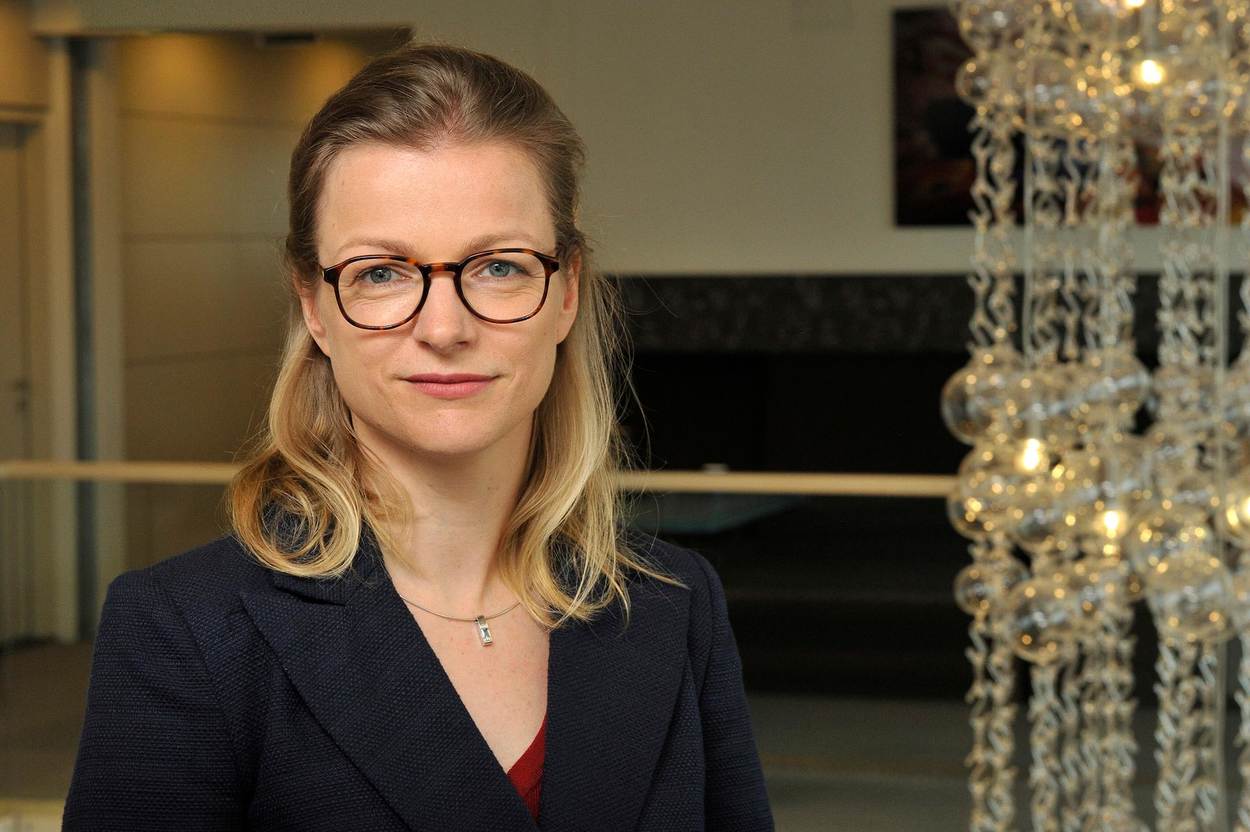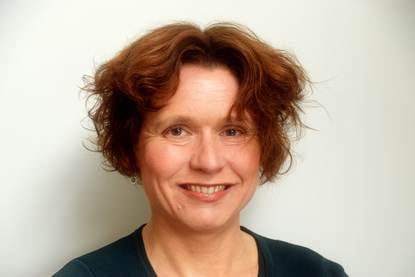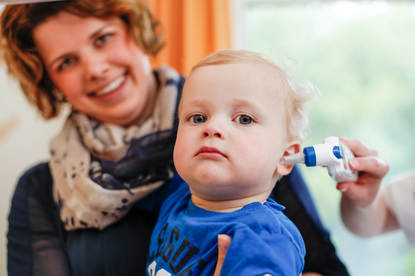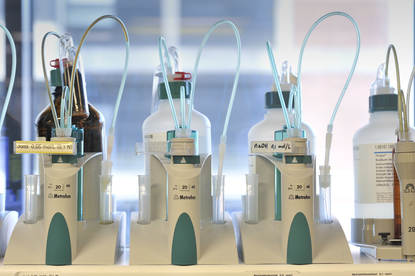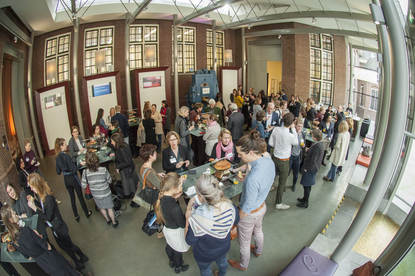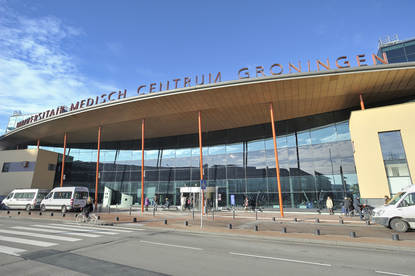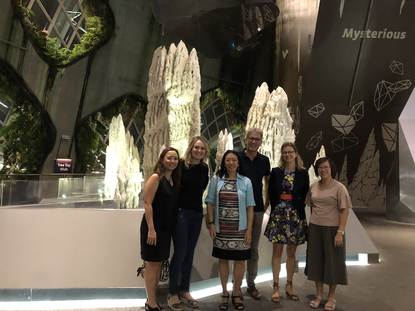A greater focus on the role of the MEB in doctorates and research with the MEB Academy
"There is a lot more regulatory science research going on at the MEB than I knew. We are involved in 19 PhD programmes. In addition, there are many other research projects going on. The MEB has so much specific knowledge to offer. I would like it to be transparent, and easy to find, for both inside and outside the organisation, what we do in the regulatory science field. That is why we are starting ‘the MEB Academy’ in 2019," explains Dr Marjon Pasmooij. Since mid April she has held the position of Science Programme Manager at the Medicines Evaluation Board (MEB). She has worked in a variety of positions for the MEB since 2007.
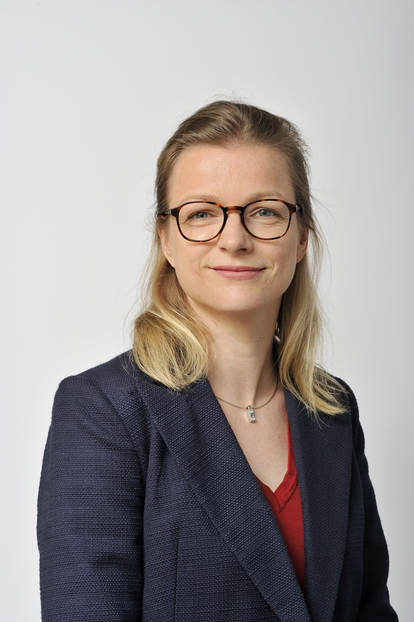
"We, of course, regularly highlight topics in the Regulatory Science Magazine. However, I would like to show that the MEB is involved in numerous PhD and research programmes. Moreover, many MEB employees teach at universities. I want to share at which universities this takes place, in which PhD programmes and with whom, the summary of the PhD projects and the publications, " Pasmooij adds. Together with chairman Ton de Boer and a number of employees she is now taking stock. Thereafter, the MEB wants to share this information through what is going to be called ‘the MEB Academy’.
The MEB Academy
"Although the MEB Academy links up with what we have been doing up to now, we want to use the Academy as a platform to draw more attention to the research projects. We want to establish clearly what the Academy is and what its activities comprise. We are doing this together with the Science Committee of the MEB. In the future we may, for example, decide to focus on certain research topics because we find them extremely important. We want to focus more, and be more transparent, prioritise and work with deadlines. We are consulting with the Science Committee about how we can communicate our decisions internally and externally. You can use this overview of scientific activities also to look critically at what this means for the science policy of the MEB for the future."
Knowledge transfer
"I consider it important to look at what is going on in the field so that the MEB can respond accordingly," explains Pasmooij. "The position of Science Programme Manager gives me the opportunity to be more involved in the MEB and its cooperation with external organisations. The network is becoming broader and that is important, because in research collaborations are key. Further, more attention will be paid to science education, to expand this further and link it with research. For the MEB it is important to strengthen our network outside the organisation. We have to be visible, more transparent and communicate clearly where external parties can find our information."
Pasmooij finds the reciprocal transfer of knowledge with the universities important: "That input will be given from, and also to the MEB. And that everyone knows what kind of research is going on. The MEB could also participate more in grant applications for external funding. For example, we are currently involved in the Innovative Training Network for Regulatory Science. Also recently a project was approved in which research will be conducted how to better inform academic groups on the process of obtaining a marketing authorisation for a product. We want more knowledge transfer. The MEB is also involved in the European Paediatric Translational Research Infrastructure (EPTRI) project, which aims to build a platform to share (non-)clinical data for paediatric medicine development."
See in this magazine, also the interview with Saskia de Wildt, and the part on the specific involvement of the MEB.
Science beneficial for the evaluation of medicinal products
"I think that science can actually improve medicinal product assessments because you are better informed about what is going on and have knowledge. We should not only focus on ourselves. I think that research has added value for the combined PhD programmes that we have. In combination with the link that the MEB maintains with academia, and therefore also with practice.
Two of the core values of the MEB are ‘scientific’ and ‘connected’. This enables us to allocate a certain percentage of the budget for regulatory science, which provides a clear vision for the future. We can prioritise more in research topics, although already a huge development has already taken place. You can now see that there is a significant link between the research and the work that we do. Ultimately our work should benefit the patients. The evaluations we do have to be good. A lot of our research consists of critically assessing the evaluation we have done: is it consistent, is it of good quality and what can we learn from it for the future? A lot of our research focuses on assessing whether the Guidelines need to be adapted. Or will be discussed in one of the working parties of the European Medicines Agency (EMA)."
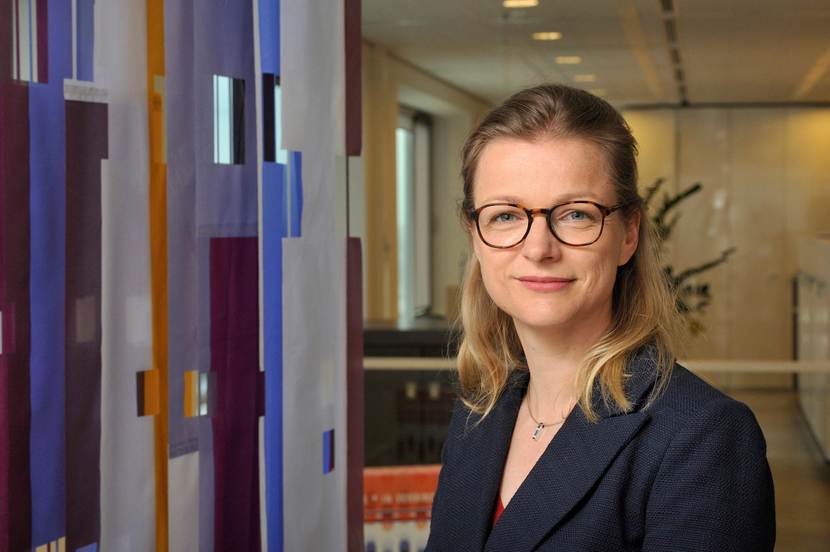
Critical view
"It is important to look critically at our work, but also at our environment. Take a look at My Tomorrows and Fair Medicines. Of course we have the frameworks within which we work, but you also need to have proper knowledge of what is going on around you. For example in the case of Advanced Therapy Medicinal Products*. Although there are guidelines, they must not hamper innovation. You can, in fact, learn if you look critically at yourself."
For example, there is currently a PhD project on registries of Carla Jonker with a focus on how often registries are requested by the EMA. In addition, it is looked at whether those registries are actually set up, and which data they are generating. These are important questions. At the end of the marketing authorisation application process there are sometimes uncertainties about the medicinal product for which the marketing authorisation holder is requested to answer these with a registry. The analysis made by Carla Jonker showed that it is not always feasible to set up a registry, because too few patients are included, or that the registry cannot answer the initial questions. These data have led to a more critical assessment of the design and feasibility of registries, and that in advance it is better discussed which questions we would like to have answered, and how these data can be collected.
Science Day 2019: Advanced Therapy Medicinal Products
The theme of the Science Day on 14 February 2019 is ‘Advanced Therapy Medicinal Products’. There are numerous developments in this field, according to Marjon Pasmooij. "Particularly with CAR-T cells in immunotherapy for cancer. The own immune cells are programmed outside the person’s own body to fight the cancer cells. The expectations are high, because the outcomes may be considerable and results of the first two registered medicinal products are good. Despite this, only relatively few ATMPs have received a marketing authorisation. There were similar high expectations with regard to gene therapy, but ultimately there are very few gene therapy products with a marketing authorisation. What can we learn from this? Why have for some ATMPs marketing authorisation been withdrawn and what can we learn from the CAR-T cells? How can you ensure that ATMPs become successful and available to patients? We want to look for possibilities to bring all parties together so that ATMPs will be available for patients.
*Advanced Therapy Medicinal Products (ATMPs) is a separately defined group of medicinal products. ATMPs include products for tissue manipulation, gene and somatic cell therapy.
